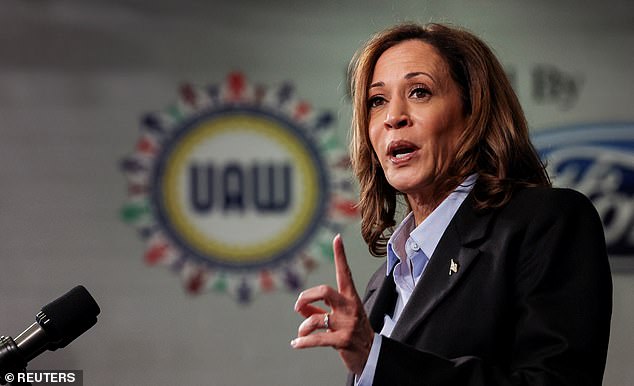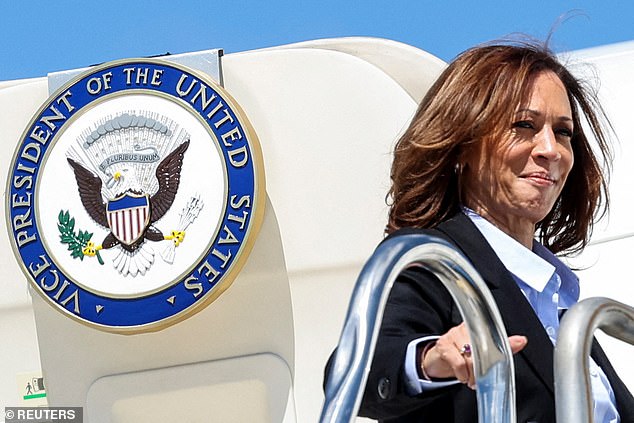Vice President Kamala Harris is set to unveil a proposal to massively expand tax relief for small businesses as she continues to lay out her economic policy platform just over 60 days before the election.
The Democratic presidential candidate will travel to Portsmouth, New Hampshire, on Wednesday, where she will announce a new goal of a record 25 million new business applications during her first term if elected.
The proposal includes expanding the small business start-up expense deduction tenfold, from $5,000 to $50,000.
Her latest speech comes just weeks after Harris traveled to North Carolina last month to give her first political speech as a presidential candidate, an economic address in Raleigh.
There he announced his plan to tackle rising prices, including a controversial plan to ban price gouging, as well as measures to address housing affordability.
The proposal includes expanding the small business start-up expense deduction tenfold, from $5,000 to $50,000.
By expanding the startup expense deduction, Harris will also call for allowing small businesses to wait to claim the deduction until after they make a profit in an effort to reduce their taxes.
According to the campaign, this would mean that a small business with $15,000 in profits in its first year could deduct that amount and then save the rest for future years and small businesses that make losses in the first year could wait until later years to claim the deduction.
The proposal is the latest part of what Harris calls her “Opportunity Economy,” and she says helping the middle class will be a top goal of her presidency from day one.
The start-up and first-year costs of running a small business in the United States are estimated to be between $30,000 and $40,000, so expanding the deduction could provide a big relief. However, it is still unclear how much the proposal would cost the government or how much it would affect the national debt.
The Committee for a Responsible Federal Budget estimated that other components of the vice president’s economic plan would cost $1.7 trillion. The campaign said proposals exceeding 2025 budget levels would be offset by higher taxes on corporations and high-income individuals.
Harris has backed the Biden administration’s tax increases, including raising the corporate tax rate from 21% to 28% and increasing the tax on stock buybacks from 1% to 4%.
Like the president, the vice president has promised not to raise taxes on those earning less than $400,000.
Any changes to tax policy must go through Congress, but lawmakers face a looming deadline with the expiration next year of some tax cuts from the law passed when Donald Trump was in office.
Harris’ new goal of 25 million new business applications during her first term would surpass the current record of 19 million, set during the Biden administration.
On Wednesday, the vice president will also unveil other initiatives that the campaign believes will cut red tape and make things easier for small businesses.
These measures include developing a standard deduction for small businesses to save time and money, making it easier to obtain occupational licenses, and incentivizing state and local governments to make their own regulatory changes to benefit small businesses.

Harris’ new goal of 25 million new business applications during her first term would surpass the current record of 19 million, which was set during the Biden administration.
At the same time, Harris will call for helping existing small businesses through several measures. Among them, the vice president will try to ensure that one in three dollars of federal contracts goes to small businesses during her first term.
He will also call for a fund to help community development financial institutions (CDFIs) cover the interest costs of small businesses that expand to locations and create jobs in areas that have historically received less investment.
Harris’ latest proposals come as the campaign has also gone into overdrive with a series of ads highlighting her economic policy proposals in key states she needs to win in November.
The vice president is making her economic pitch as recent polls show her in a tight race with Donald Trump, but on the issues, more voters have said they trust the Republican presidential nominee to handle the economy and inflation that have soared in the wake of the coronavirus pandemic.

